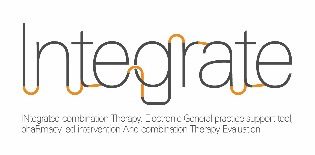
INtegrated combination Therapy, Electronic General practice support tool, phaRmacy led intervention And combination Therapy Evaluation (INTEGRATE)
What is INTEGRATE?
INTEGRATE is an NHMRC-funded study that will evaluate a novel intervention aimed at improving overall cardiovascular health by increasing long term use of cardiovascular disease preventive medications in high risk individuals. This involves combining three evidence based tools:
- General practice based electronic decision support, audit and communication tool (HealthTracker) to aid cardiovascular disease risk stratification and management
- Availability of a range of cardiovascular disease “polypills” (fixed dose combinations of two blood pressure lowering medicines, one cholesterol lowering medicine +/- aspirin) and
- Access to a highly tailored pharmacy-based support service for long-term adherence and lifestyle support.
This study includes a development phase, followed by a “real life” cluster randomised controlled trial in 70 Australian general practices in New South Wales and Victoria (with 35 paired pharmacies in the intervention arm) over 18 months. The effects of the intervention on systolic blood pressure and LDL cholesterol levels will be monitored in high-risk, undertreated patients.
Recruitment of general practices is currently in progress. Find out how GP practices can be involved: Participating in INTEGRATE – a Guide for GPs (PDF).
CONTACT:
INTEGRATE Study
For NSW sites:
Bal Kaur, INTEGRATE Project Manager
T: +61 2 8052 4500 / MB: 0413 434 544
E: INTEGRATE@georgeinstitute.org.au
Postal Address: PO Box M201 | Missenden Rd | NSW 2050 Australia
For VIC sites:
Louise Turnour, Study Coordinator
T: 1800 199 108
med-integrate@monash.edu
Related People
-
Dr Charlotte Hespe
University of Notre Dame, Australia -
Professor Chris Reid
Monash University, Australia -
Associate Professor Bandana Saini
Faculty of Pharmacy, The University of Sydney, Australia -
Professor Ines Krass
Faculty of Pharmacy, The University of Sydney, Australia -
Professor Carol Armour
Woolcock Institute of Medical Research, The University of Sydney, Australia -
Dr Serigne Lo
The University of Sydney, Australia -
Dr Fred Hersch










